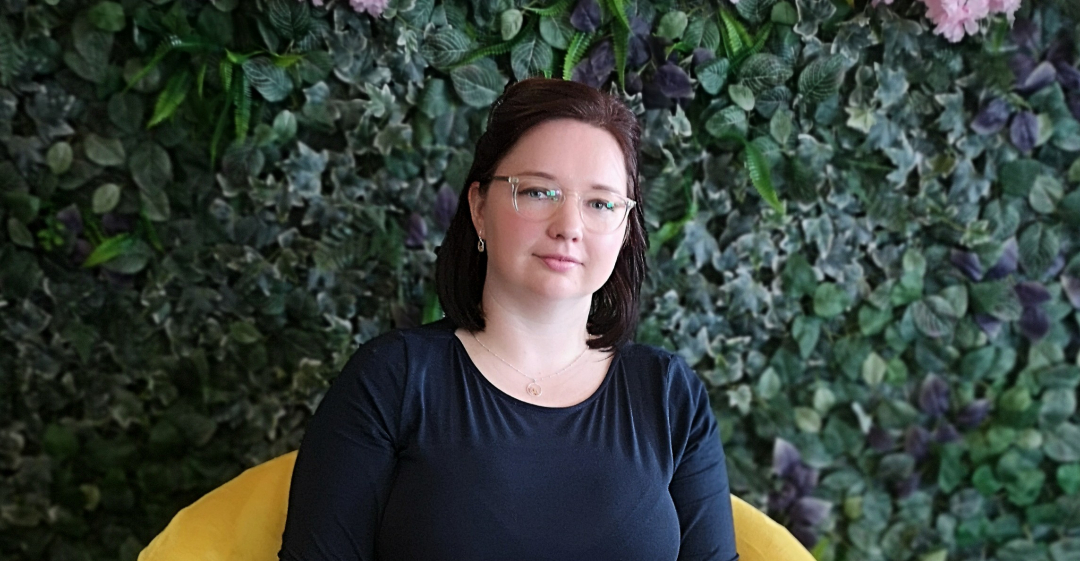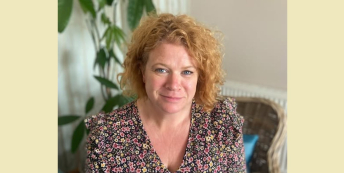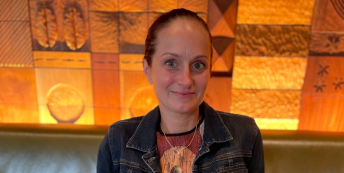“When somebody I'd just met asked me about what I did for work, I'd wish I didn't have to tell them.”

Newly Updated
What work were you doing previously?
I used to work for a very big bank, in IT infrastructure.
What are you doing now?
I work for a tech studio that specialises in User Experience (UX) design.
My job title is UX Designer, although I don't do so much of the things usual UX designers would.
I'm much more focused on the user research side, which I really enjoy. I interview the people who are going to use the things that we're going to make.
A good day for me is doing a lot of one-to-one interviews with different people, and then at the end of all the interviews I analyse for themes, which I really enjoy.
How did you feel in your work before you decided to make the change?
I got into it by mistake.
I’m really interested in what I now realise is human-computer interactions, but somehow I ended up in backend technology where I never saw real humans (beyond my colleagues).
There was also a long feedback loop between me doing something and seeing the result or impact – it felt like I wasn’t making any difference to anyone in the world.
I got paid a lot of money to do my job but it just didn't feel like it made any impact and if it did, I never got to see it.
Why did you change?
I just couldn't identify with what I did.
I knew I needed to change because when somebody I'd just met asked me about what I did for work, I'd wish I didn't have to tell them, and didn't feel happy about sharing.
When was the moment you decided to make the change?
A few months before the start of the pandemic, my team was disbanded.
My workplace said we could either move into another team doing the same thing (but worse, moving to a new manager who was known for micromanaging), or take a redundancy pay out. I didn't know that Covid-19 would be coming, so I decided to take the redundancy option and left.
I might not have done that if I'd had been able to foresee the pandemic, because it was very difficult navigating career change during that time having already quit my job. But it was what it was.
I sought out the Career Change Launch Pad for a bit of support and structure during this time.
How did you choose your new career?
In hindsight I'm surprised I didn't connect the dots sooner, looking back I can see all the clues now. But I didn't know about UX or that it would be UX that I'd shift to when I left my role.
Initially instead I was exploring options around marketing and publishing. I did around 10-15 broad initial informational interviews to explore options.
When I took the ideas of marketing or publishing to their conclusion, I decided that those areas weren’t right for me, and I then came to start thinking about UX.
When I settled on the idea of UX as something I wanted to focus on, I had more targeted conversations with people in the UX community.
Are you happy with the change?
Yes.
How I feel about work is so different from before.
When I get to the end of a holiday I feel like ‘oh I'm going back to work on Monday but that's okay’, whereas in my old role I just felt awful.
How did you go about making the shift?
Ultimately I decided to not formally retrain, but instead I read a lot, used a lot of online resources, and formed my own projects.
For example I worked with some people that I knew from my previous role who had set up their own design studio, doing UX work for a product they had.
I worked with Scottish Tech Army at one point and I'd highly recommend them to anyone looking for a shift project involving technical skills – they connect volunteers up with nonprofits who need projects done and form project teams.
So that's how I trained myself for free, pretty much.
I then applied to an advertised role in an agency.
My (now) boss has a very conversational, personal approach to interviewing so all the informational interviews I’d conducted were good preparation.
How did you handle your finances to make your shift possible?
I received a redundancy payout when I left my previous job which helped.
You can spend a LOT of money on UX bootcamps which I ultimately decided wasn't a good investment for me. I felt quite anxious about spending any money at all because I didn't know what I would do when it ran out.
I set a little budget of 10% of what I could have spent on a bootcamp (which was still a good few hundred pounds) to see what I could achieve myself with books, free resources and applying what I'd learned on my own projects.
Some of my other shift projects generated a bit of money too – I did a series of watercolour animal illustration Christmas cards which I sold on Etsy. But to be honest the most valuable thing I got from that was learning how much I don't like dealing with operational, marketing and admin things myself!
What was the most difficult thing about changing?
It's easy to forget how difficult it is not to know where you're headed.
The awkward bit in the middle where I'd explored quite a few things that weren't quite right was very doubt-filled and difficult for me.
At the time I had no idea how long it would be until I got a hold of the right idea, or what ‘right’ would feel like, or if there even was a right thing...
I just had to keep pushing on and staying open to new ideas.
What help did you get?
Having an accountability buddy was huge for me.
There was another shifter from my Launch Pad cohort that I'd clicked with and we kept in touch to check in after the course, as we continued to move forward with our shifts.
It was really nice to have someone to talk to who knows what it’s like to go through a career change. Making the shift can be hard, and people who haven't been through it themselves don’t really know what it’s like.
What have you learnt in the process?
To tell people out in the world about what I want to do, rather than keeping it to myself.
If you do everything by yourself and don't tell anyone what you're doing, any assumptions you might have go unchecked and can influence what you do, and how successful you're likely to be.
I think some assumptions I had would have held me back if I hadn't brought them out into the light and shared what I was doing with others.
What would you advise others to do in the same situation?
Something I found really helpful was to keep a bullet journal, which was not only a really good way of tracking what I had to do, but also as a way to look back and see my progress.
It's easy to feel like you haven't moved, but I could look back through my journal and see that at least I'd done things and had been taking action towards my shift.
We caught up with Emma recently to see how her shift was working out, roughly two years on. Here's what she's been up to, and the biggest lessons she's learned.
What's changed for you in your career since we first published your story?
I've moved from the UX agency I was at to the Civil Service, where I'm now a Senior User Researcher at the DVSA (Driver and Vehicle Standards Agency).
How do you feel about your work now?
I really enjoy my work.
I work on how we improve MOT test systems, which may sound a little boring, but it's a lot better for my work-life balance. Previously I’d worked with a social housing company and did my research with lots of vulnerable people.
It was important work but it was quite tough mentally and I tended to still be thinking about it long after I logged off.
Now I tend to do most of my research with mechanics in garages, so it's totally new to me which is exciting, and the topic is (usually) not as emotive.
I've seen some very interesting garages, from Mercedes-Benz dealerships (which I'd never go in otherwise!) to an independent site with fishtanks, novelty superhero cars and 20ft tall dinosaur puppets.
What challenges have you come up against since making your shift, and how exactly have you dealt with them?
Redundancy again!
The small company I was working at got into financial difficulties and we all lost our jobs last May. I was really worried because it was so tough for me to find my first UX job, I was expecting it to take almost as long to find another one.
But I was very lucky to secure a new job very quickly. I did three interviews in June, two of which were companies I was really excited about, and my two favourites both offered me jobs. I was so sad to have to turn one of them down, but I can't really complain about having such a great problem!
Getting my second job in my new field was 10000x easier than getting my first.
How is the financial side of things panning out, and is this what you'd expected?
I earn less money than I did in banking, but I knew that would be the case going in.
What have you learned, since making your shift?
I tried out running an Etsy shop/working as a freelance illustrator and my big takeaway was I don't think I should ever work for myself again, unless I can set much firmer boundaries.
I'm a lot happier now I work for someone else again!
Is there anything else you'd like to share?
One of the other ideas I explored on the Launch Pad was around writing as an industry.
I did an informational interview with an editor in a publishing house which was fascinating, but I couldn't really see why my voice would be needed as an editor, since it seemed like 'young white women with English degrees from Oxford or Cambridge' were extremely well represented already...
Now that I'm established in my new career, I've figured out that the way writing fits into my life is just... writing.
I'm working on a novel in the mornings before work, and if it turns out that it's not possible to sell ancient Greek fantasy, well, user research pays my mortgage. Everything else can just be for fun again.
Emma took part in our Career Change Launch Pad. If you're ready to join a group of bright, motivated career changers on a structured programme to help you find more fulfilling work, you can find out more here.
What lessons could you take from Emma's story to use in your own career change? Let us know in the comments below.



